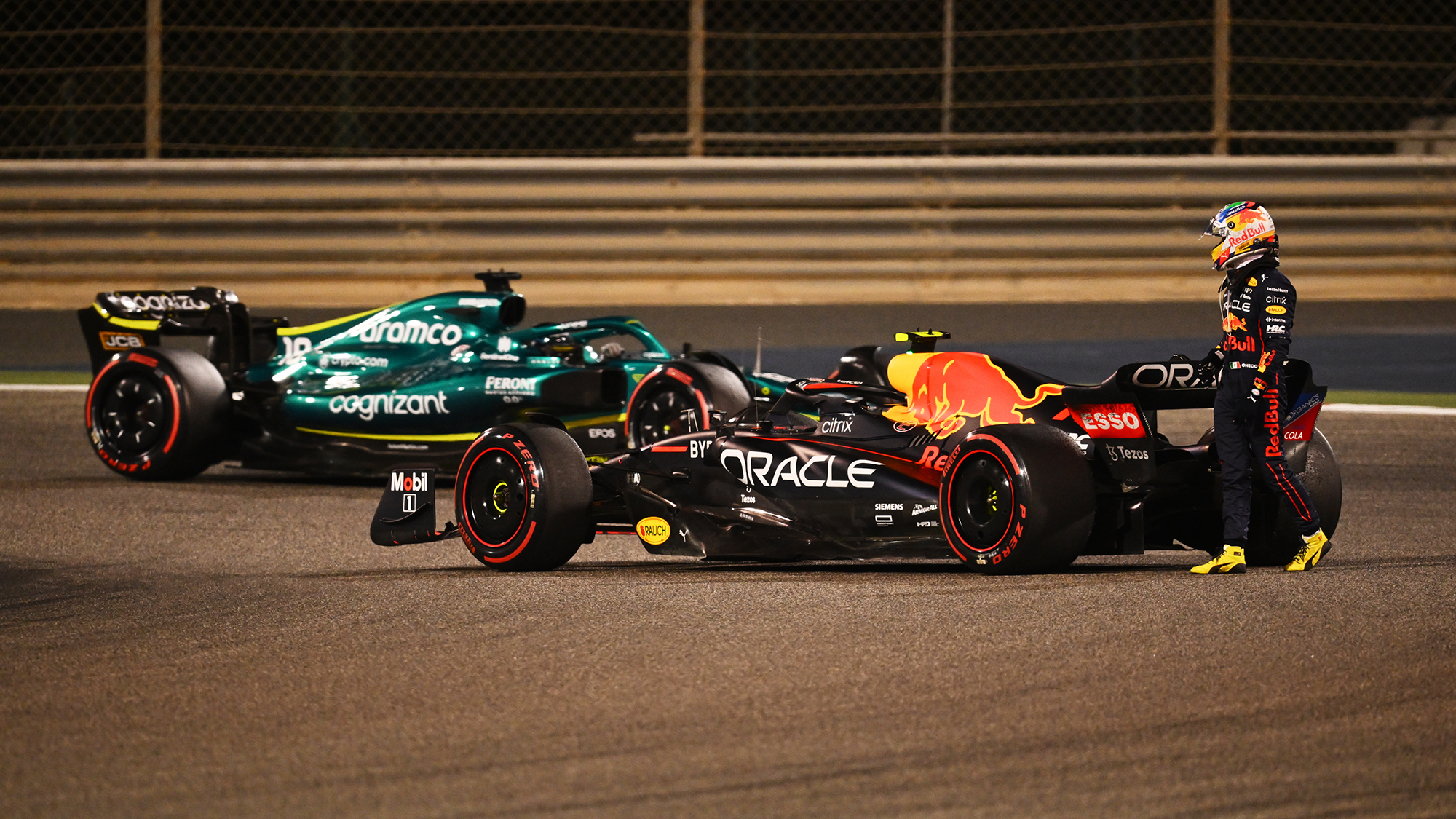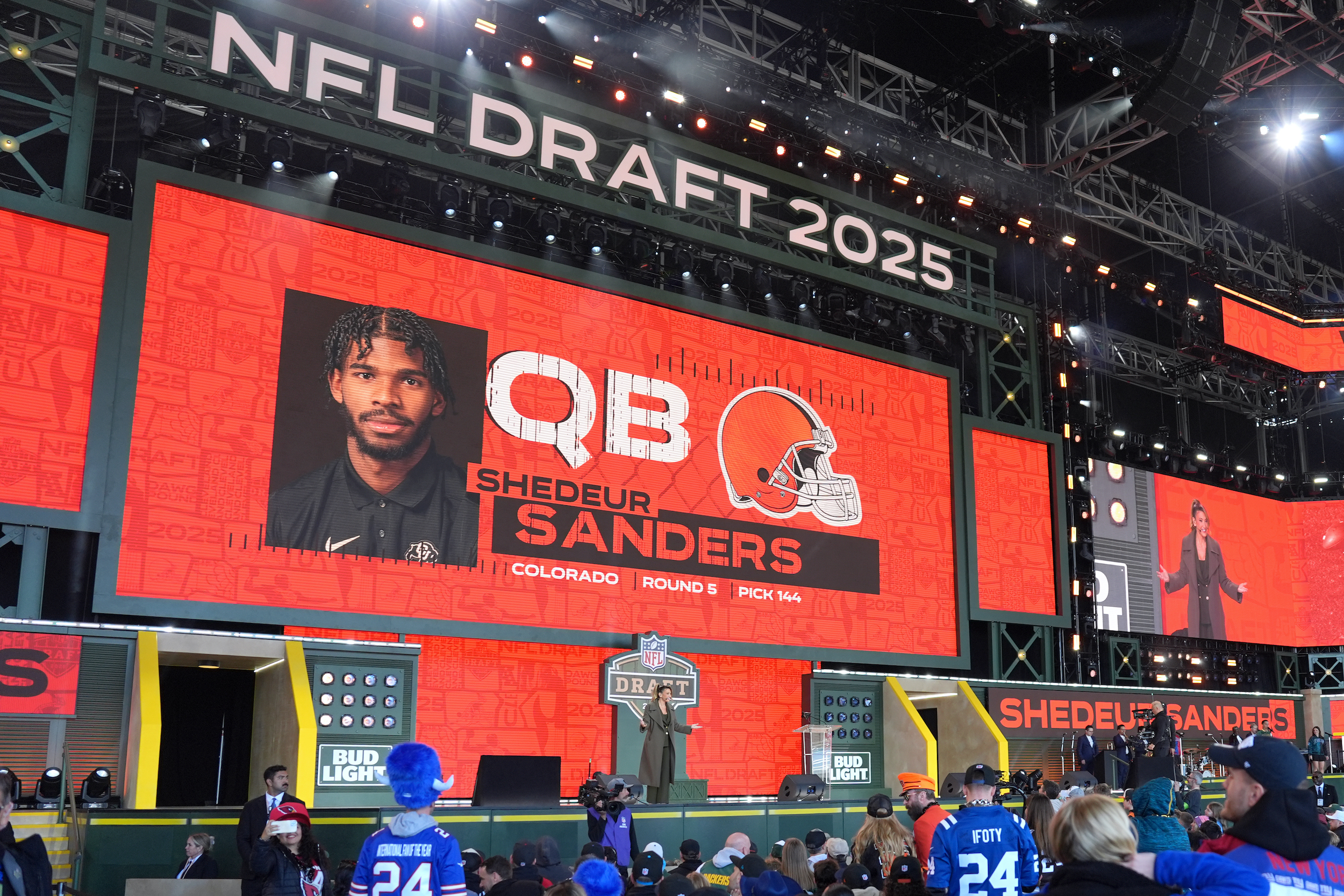The Bahrain Grand Prix kicked off the 2022 Formula 1 season on Sunday, and there was no shortage of storylines to start the new year of motor racing. The "Ferrari is back!" crowd got a major boost as Charles Leclerc won the race, just ahead of his teammate Carlos Sainz in second place. Kevin Magnussen finished in fifth for Haas, earning his team more points than they had in the last three seasons combined. McLaren put up a horrid 14-15 finish after finishing in fourth as a team last season. Lewis Hamilton got yet another podium at the death. The main plotline coming out of race number one, though, was the almost complete collapse of Red Bull's new engines.
The madness started with Pierre Gasly, racing for sister team AlphaTauri: The Frenchman's car caught fire on lap 46, though luckily he was able to get out safely with no injuries from the flames.
LAP 46/57
— Formula 1 (@F1) March 20, 2022
Gasly's race ends - flames coming out of the rear, expertly dealt with by a race marshal
⚠️ SAFETY CAR DEPLOYED ⚠️#BahrainGP #F1 pic.twitter.com/uHHArGF5Ht
That caused a safety car that shrank Leclerc's lead, with reigning world champion Max Verstappen right behind him as the pack consolidated for five laps. With just a handful of laps to go, it looked like a two-car struggle was in the near future, but Verstappen's radio communications with his team told a different story. The Dutchman's car lost some power steering and was eventually passed by Sainz. With the car struggling to stay on the road, and the win already out of reach as Leclerc sped ahead, Red Bull decided to pit and retire Verstappen.
LAP 55/57
— Formula 1 (@F1) March 20, 2022
Verstappen has lost power, limps back to the pits and is out of this race #BahrainGP #F1 pic.twitter.com/0cttLQvB79
Not the start that the reigning world champion would have wanted, but things got worse immediately for his team. Just two laps later, Red Bull's other driver, Sergio Pérez, was defending against Hamilton for the final podium slot behind the Ferrari duo, but his car spun out on turn one. A spinout cost Pérez the podium, but he still could have salvaged some points ... except that his engine completely locked out, forcing him to follow his teammate into the Retirement Zone.
LAP 57/57
— Formula 1 (@F1) March 20, 2022
More drama! Perez spins at Turn 1
Hamilton passes him and moves up to P3 #BahrainGP #F1 pic.twitter.com/rEKv3ezRc0
For those keeping track, the new Red Bull engines crapped out in three of the four cars that utilized them; the only holdout and finisher was AlphaTauri's Yuki Tsunoda, who finished a comfortable eighth, jumping up from his starting spot of 16th. Heading into this season, Honda had withdrawn from its partnership with Red Bull after manufacturing the engines that the team had used for three years. In Honda's place came Red Bull Powertrains, a new division of the energy drink mega-conglomerate, though Honda remained to help with the engine production until 2025. The belief at Red Bull was that the new in-house engine development could help push the team to its first team championship in the Constructors' since 2013.
It's just one race of absolute disaster for one of the biggest teams in the sports, and perhaps it was just a bad day in the desert. After all, Red Bull came out of preseason likely feeling great about its chances to finally climb that summit once more. Conventional wisdom had the new Red Bull car ahead of everyone, save maybe for Ferrari. The team's biggest competitor in recent memory, Mercedes, had struggled with its new design following the new regulations introduced by the sport for the 2022 season. Even on Sunday, the Mercedes seemed far behind both Red Bull and Ferrari, and Verstappen was keeping pace with Leclerc, even overtaking him a couple of times.
Surely, it will be disappointing that 75 percent of Red Bull-powered cars didn't finish the race, particularly because the Verstappen and Pérez retirements allowed Hamilton to pick up that aforementioned podium. It's probably too early to worry about Red Bull going forward; the team still has two of the very best drivers in the sport, as well as the resources to fix whatever issues caused both of their leading cars to die a slow death at the end of the Bahrain Grand Prix. With Ferrari entering the fray for the top, though, every point is going to be crucial, and Red Bull can't afford too many zero point days like Sunday.






